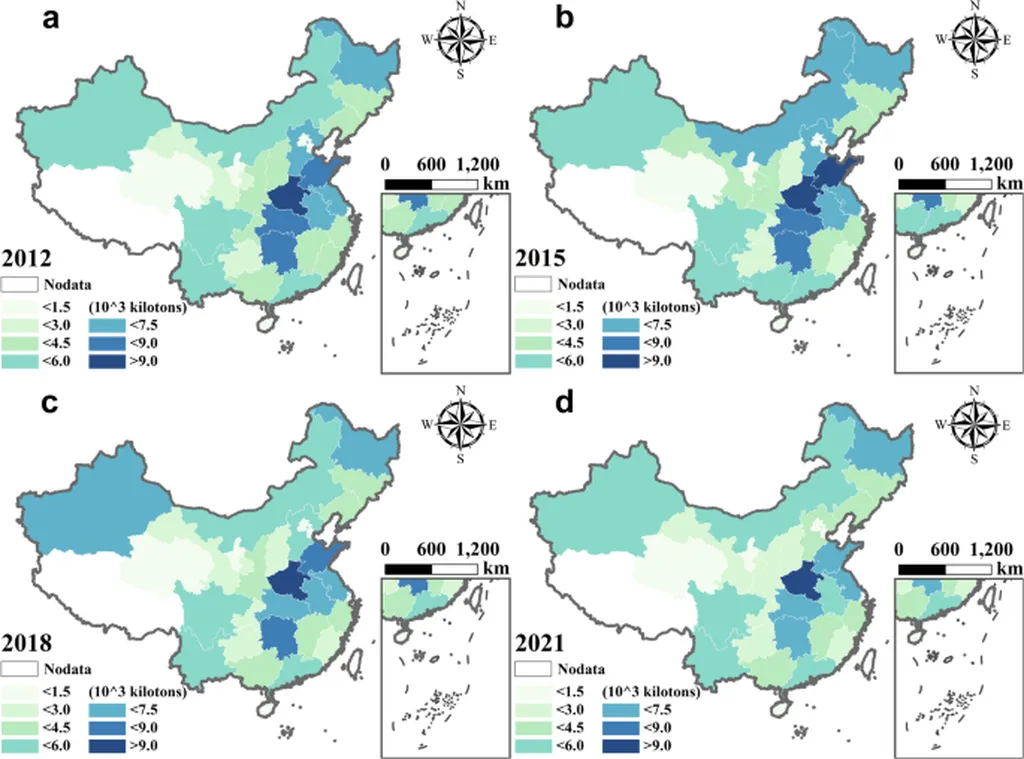In a groundbreaking study published in *Ziyuan Kexue*, researchers have uncovered the profound impact of digital village construction on agricultural carbon emission reduction in China. The study, led by SU Lin from the College of Economics and Management at Henan Agricultural University, alongside colleagues HE Zejun and YANG Weiming, sheds light on how digital transformation in rural areas can drive significant environmental benefits while boosting agricultural productivity.
The research, which analyzed provincial panel data from 2009 to 2022, reveals that digital village construction plays a pivotal role in reducing agricultural carbon emissions. The findings indicate that this impact is not linear but exhibits a dual-threshold effect. “Initially, digital village construction promotes carbon emission reduction, but as it surpasses certain developmental stages, its influence shifts to a significant inhibiting effect,” explains SU Lin. This nuanced understanding highlights the importance of strategic planning in digital village initiatives to maximize their environmental benefits.
The study also identifies key transmission pathways through which digital village construction achieves these reductions. “Digital village construction primarily promotes agricultural carbon emission reduction by fostering human capital accumulation, technological advancement, and rural-urban integration,” says HE Zejun. These factors collectively enhance the efficiency and sustainability of agricultural practices, making them less carbon-intensive.
One of the most compelling aspects of the research is its spatial analysis, which shows that agricultural carbon emissions exhibit significant spatial correlation characteristics. Digital village construction not only affects local areas but also has spatial spillover effects, promoting carbon reduction in neighboring regions. This finding underscores the potential for regional cooperation and data sharing to amplify the benefits of digital village initiatives.
The commercial implications of this research are substantial. For the agriculture sector, the study suggests that investing in digital infrastructure and technologies can lead to more sustainable and profitable farming practices. By reducing carbon emissions, farmers can comply with environmental regulations more easily, potentially accessing new markets and premium pricing for eco-friendly products. Additionally, the integration of digital technologies can enhance productivity and efficiency, leading to higher yields and lower operational costs.
The study also highlights the importance of heterogeneity in the effectiveness of digital village construction. Areas with stringent environmental regulations and wheat-corn producing regions show more pronounced carbon reduction effects. This insight can guide policymakers and investors in targeting their efforts and resources more effectively.
As the world grapples with the challenges of climate change and the need for sustainable agriculture, this research offers a promising pathway forward. By accelerating the digital transformation of agriculture and focusing on key areas such as human capital development, technological innovation, and urban-rural integration, the agriculture sector can achieve significant carbon emission reductions while enhancing its commercial viability.
The study, published in *Ziyuan Kexue* and led by SU Lin, HE Zejun, and YANG Weiming from the College of Economics and Management at Henan Agricultural University and the College of Finance and Economics at Shenzhen Institute of Information Technology, provides a comprehensive framework for understanding the multifaceted impacts of digital village construction on agricultural carbon emission reduction. As the agriculture sector continues to evolve, the insights from this research will be invaluable in shaping future developments and policies.

